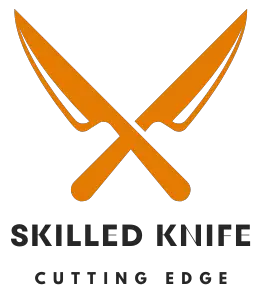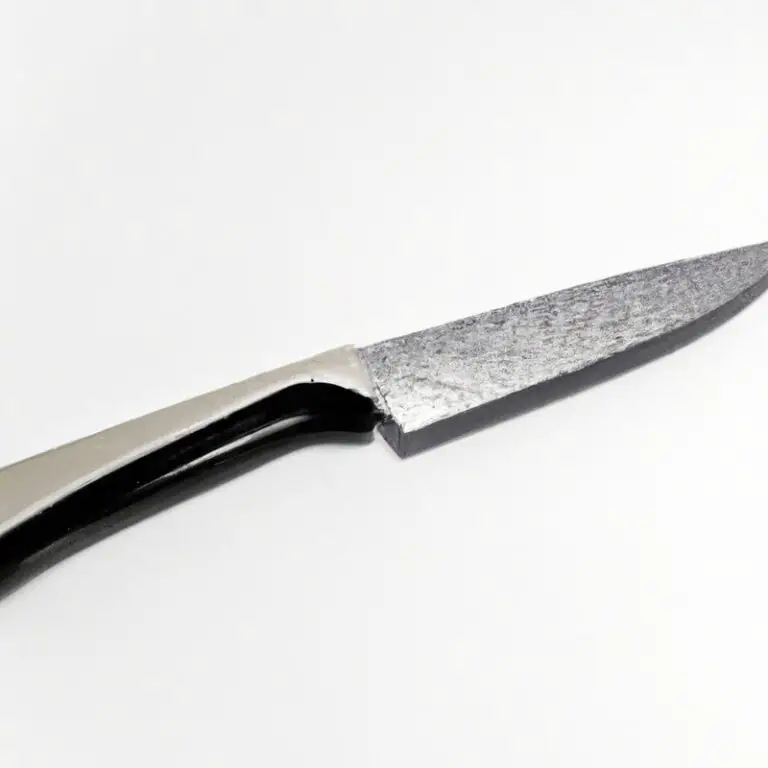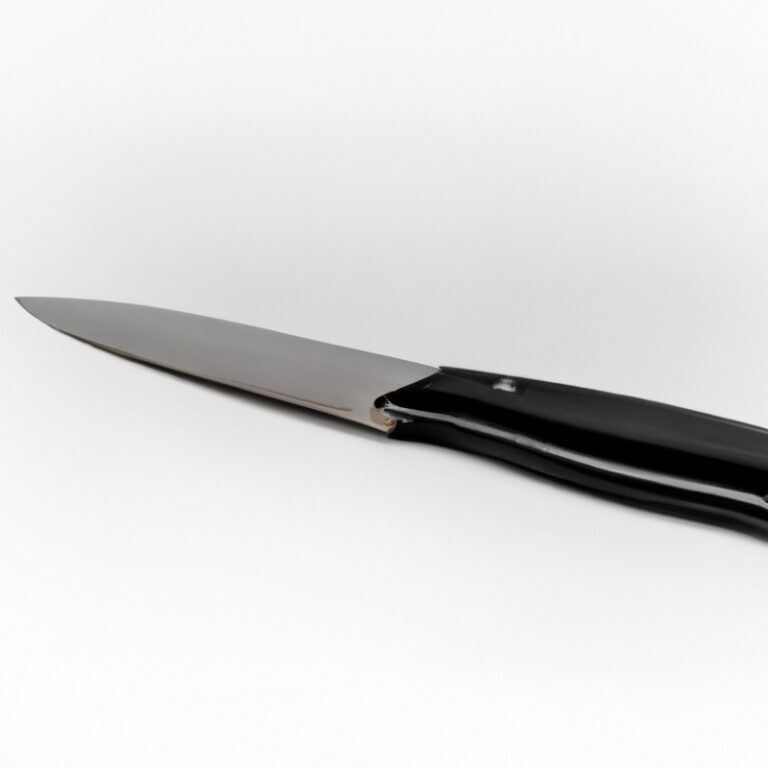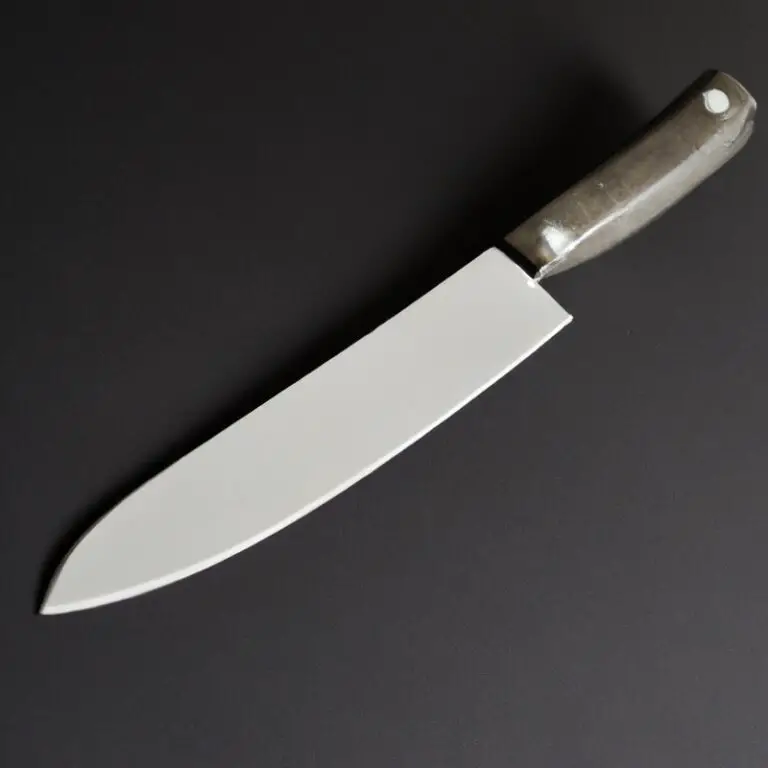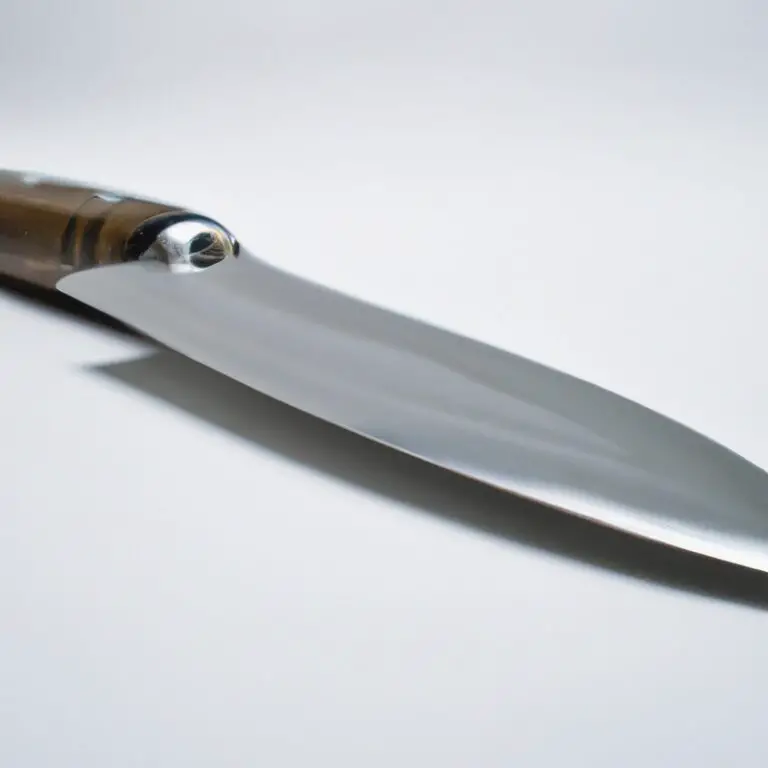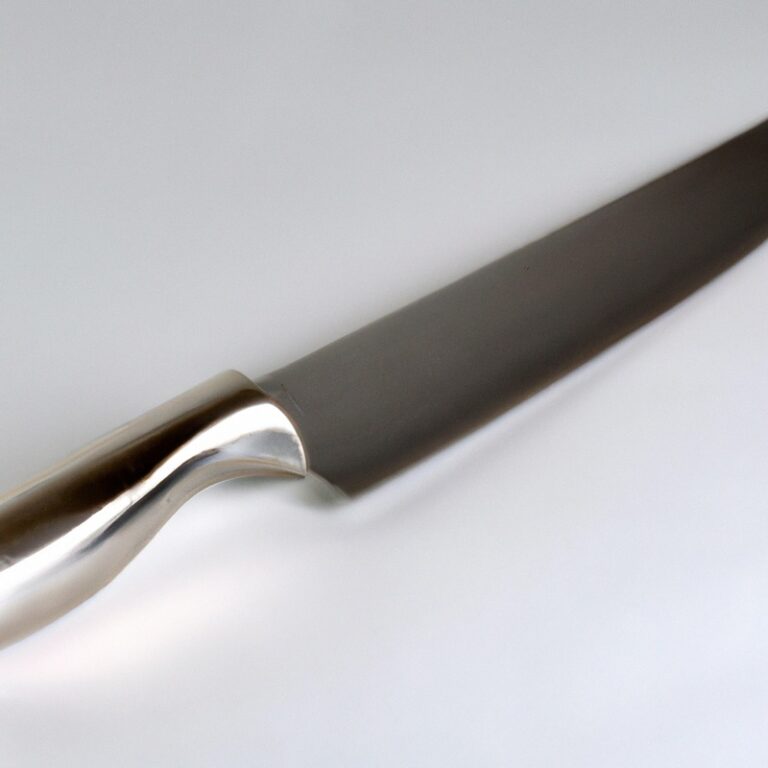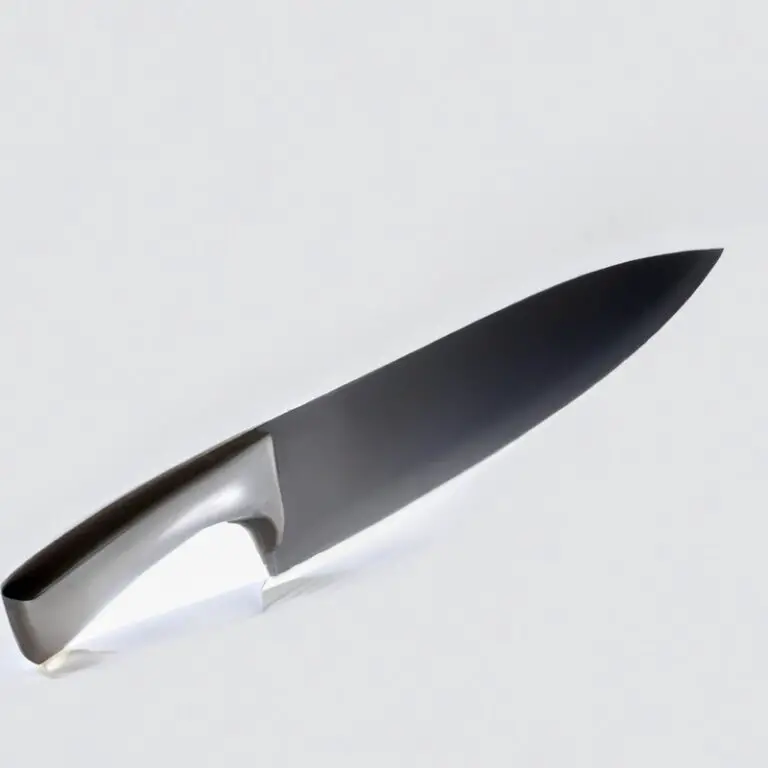What Are The Benefits Of Using a High-Alloy Knife Steel?
Key Takeaways:
- High-alloy knife steels offer increased hardness and durability.
- They provide superior corrosion resistance, making them suitable for use in high-moisture environments.
- High-alloy knife steels retain their sharpness for longer periods, reducing the need for frequent sharpening.
- They offer excellent edge retention, allowing for precise and consistent cuts.
Are you tired of using dull, rusted, and unreliable knives in your kitchen?
Well, let me introduce you to the world of high-alloy knife steel.
Trust me, once you experience the power of this remarkable material, you will never go back.
High-alloy knife steel offers a range of benefits that elevate your cooking game to a whole new level.
From superior sharpness and edge retention to enhanced corrosion resistance and improved durability, this steel has it all.
Not to mention the ease of maintenance and its incredible versatility in various applications.
In this article, I will guide you through the unparalleled advantages of using high-alloy knife steel, ensuring your cutting experience is truly exceptional.
So, let’s sharpen our knowledge and dive into the world of high-alloy knife steel together!
| Benefits of using a high-alloy knife steel |
|---|
| 1. High durability and strength |
| 2. Excellent edge retention |
| 3. Enhanced sharpness |
| 4. Resistance to corrosion and rust |
| 5. Versatility for different cutting tasks |
Understanding High-Alloy Knife Steel
What is High-Alloy Knife Steel?
High-alloy knife steel refers to a type of steel that contains a higher percentage of alloying elements compared to standard knife steels. These alloys typically include elements like chromium, vanadium, molybdenum, and sometimes cobalt.
The addition of these alloying elements enhances the performance of the steel, resulting in improved sharpness, edge retention, corrosion resistance, durability, and strength.
High-alloy knife steel is highly versatile and used in various applications due to its exceptional properties.
How is High-Alloy Knife Steel Different?
High-alloy knife steel is different from other types of steel due to its increased carbon content and the addition of other alloying elements such as chromium, molybdenum, and vanadium. These alloying elements contribute to the steel’s enhanced hardness, corrosion resistance, and overall durability.
High-alloy knife steel is specifically designed to provide superior sharpness, edge retention, and strength, making it ideal for high-performance knives.
Additionally, it offers improved resistance to wear and tear, ensuring that your knife lasts longer and performs at its best.
Common Types of High-Alloy Knife Steel
There are several common types of high-alloy knife steel that are widely used in the production of high-quality knives. Some of these include:
- Stainless Steel: Known for its corrosion resistance, stainless steel is a popular choice for kitchen knives due to its ability to withstand moisture and acids present in food.
- Damascus Steel: A traditional type of steel characterized by its distinctive pattern, Damascus steel is renowned for its strength, durability, and sharpness. It is often used in premium and custom-made knives.
- VG-10: This Japanese stainless steel is highly regarded for its exceptional edge retention and corrosion resistance. It is commonly used in both kitchen and pocket knives.
- S30V: A premium stainless steel, S30V is known for its excellent wear resistance and edge retention. It is frequently used in high-end folding knives and hunting knives.
- D2: D2 steel is highly valued for its toughness, wear resistance, and ability to hold an edge. It is often used in heavy-duty knives and tools.
These are just a few examples of the common types of high-alloy knife steel that you may come across. Each type has its own unique properties and performance characteristics, so it’s important to consider your specific needs and preferences when choosing a knife.
Benefits of Using High-Alloy Knife Steel
Superior Sharpness and Edge Retention
Superior sharpness and edge retention are two key benefits of using high-alloy knife steel.
The composition of this type of steel allows for a finer, more precise edge, resulting in increased cutting performance.
Additionally, high-alloy knife steel has excellent edge retention properties, meaning the knife will stay sharp for longer periods of time, reducing the need for frequent sharpening.
This is especially beneficial for professional chefs and avid home cooks who rely on their knives for precise and efficient cutting tasks.
So, with high-alloy knife steel, you can enjoy the satisfaction of effortlessly slicing through ingredients with a razor-sharp edge.
Enhanced Corrosion Resistance
One of the key benefits of using high-alloy knife steel is its enhanced corrosion resistance.
This means that the knife is less likely to corrode or rust over time, even when exposed to moisture or harsh conditions.
High-alloy knife steel typically contains elements like chromium, which forms a protective layer on the surface of the blade, preventing corrosion.
This makes high-alloy knife steel a great choice for outdoor, marine, or kitchen applications, where the knife may come into contact with water or other corrosive substances.
Additionally, the enhanced corrosion resistance helps to prolong the lifespan of the knife, ensuring that it remains in optimal condition for longer periods of time.
Improved Durability and Strength
One of the major benefits of using high-alloy knife steel is its improved durability and strength.
High-alloy steels are specifically designed to handle demanding tasks and withstand regular use over time.
These steels are known for their exceptional hardness and toughness, making them less prone to wear and damage.
By using high-alloy knife steel, you can have confidence in the durability and strength of your knife, ensuring it will last longer and perform optimally even in challenging conditions.
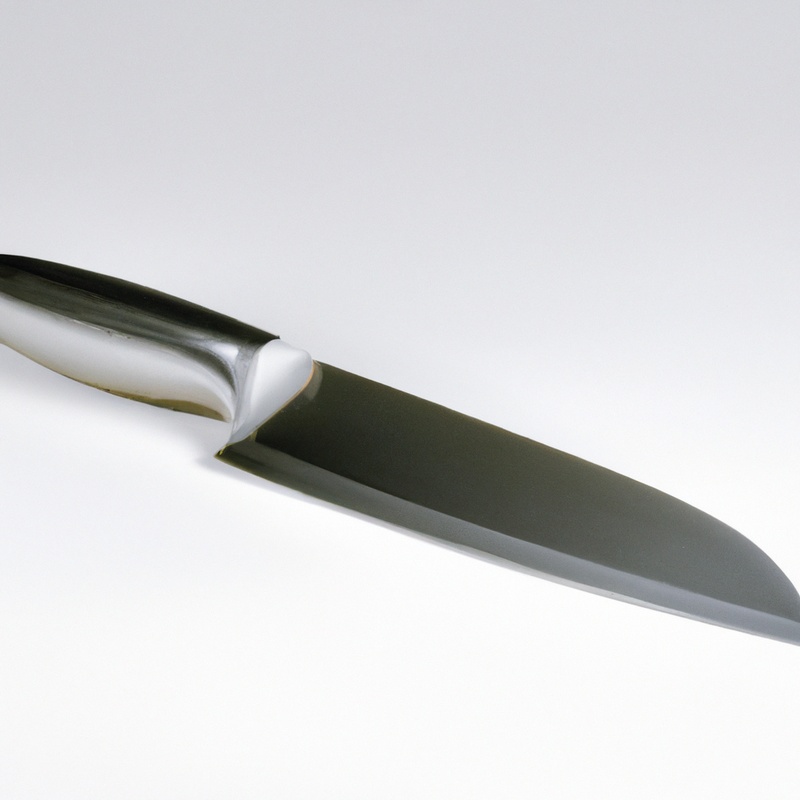
Ease of Maintenance
Maintaining a high-alloy knife steel is surprisingly easy. Regular cleaning and drying after each use is essential to prevent rust and corrosion.
Avoid using abrasive materials or harsh chemicals that could damage the steel.
Additionally, periodic sharpening is necessary to keep the blade sharp. With proper care, high-alloy knife steel can last for years without losing its performance or durability.
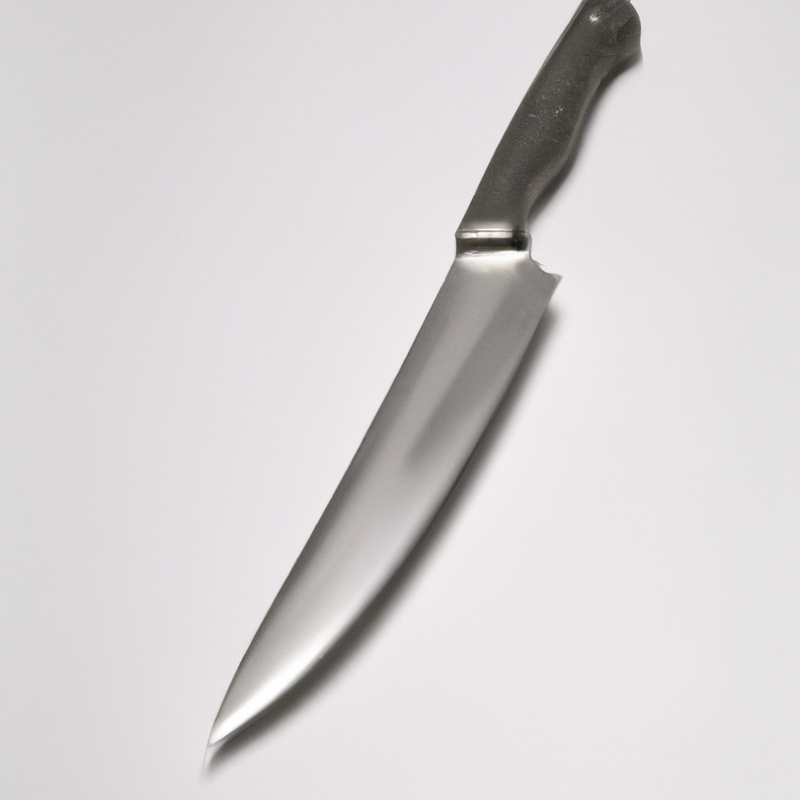
Versatility in Applications
High-alloy knife steel offers versatility in various applications. It can be used for everyday kitchen tasks such as slicing vegetables and butchering meat.
Additionally, it is suitable for outdoor activities like camping and hunting due to its durability and strength.
With the right high-alloy knife steel, you can achieve precision and control in both delicate and heavy-duty cutting tasks. Whether you are a professional chef or an outdoor enthusiast, high-alloy knife steel is a reliable choice for a wide range of applications.
Considerations When Choosing High-Alloy Knife Steel
Cost Factor
The cost factor is an important consideration when choosing high-alloy knife steel.
The price of different high-alloy steels can vary greatly, so it’s crucial to consider your budget before making a decision.
Some high-alloy steels, such as powdered steels, can be more expensive due to their manufacturing process and superior properties.
However, there are also affordable options available that offer good performance.
By considering your budget and weighing it against the desired qualities of the steel, you can find a high-alloy knife steel that meets your needs without breaking the bank.
Skill Level and Preference
When choosing high-alloy knife steel, two important factors to consider are your skill level and personal preference. If you are a beginner or have limited experience with knives, you may prefer a high-alloy steel that is easier to sharpen and maintain.
Look for options that offer good edge retention without requiring frequent sharpening.
On the other hand, if you are an experienced chef or knife enthusiast, you may prioritize performance and choose a high-alloy steel known for its exceptional sharpness and edge retention, even if it requires more frequent maintenance. Ultimately, the decision comes down to what feels comfortable in your hand and suits your specific needs and style of knife usage.
Specific Knife Purpose
When choosing a high-alloy knife steel, it is important to consider the specific purpose of the knife. Are you using it for slicing, chopping, or intricate tasks?
Different tasks require different blade properties.
For example, a knife used primarily for slicing should have excellent sharpness and edge retention. On the other hand, a knife used for heavy-duty tasks might prioritize durability and strength.
By considering the specific purpose of your knife, you can select a high-alloy steel that meets your needs for performance and functionality.
Maintenance Requirements
Maintenance requirements for high-alloy knife steel are relatively low compared to other types of steel.
Regular cleaning and drying after use is essential to prevent corrosion.
Additionally, it is recommended to periodically oil the blade to keep it in optimal condition.
Sharpening may be required as needed, depending on the frequency of use and the specific alloy.
Proper storage in a dry and clean environment will also help extend the lifespan of the knife.
With minimal effort, high-alloy knife steel can be maintained for long-lasting performance.
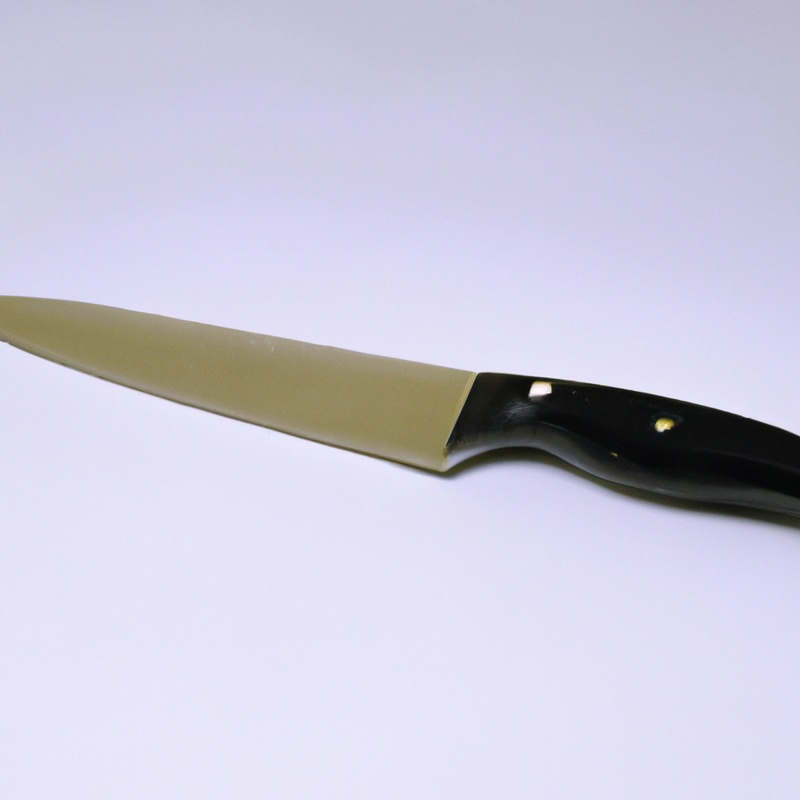
Final Verdict
High-alloy knife steel undoubtedly offers numerous benefits that make it an excellent choice for knife enthusiasts.
With its superior sharpness and edge retention, enhanced corrosion resistance, improved durability and strength, ease of maintenance, and versatility in applications, high-alloy knife steel stands apart from other materials.
However, it’s essential to consider factors such as cost, skill level, knife purpose, and maintenance requirements when choosing high-alloy knife steel.
By weighing these considerations, knife users can make informed decisions that align with their needs and preferences.
Trust in the reliability of high-alloy knife steel to enhance your culinary experience and make your knife a long-lasting companion.
